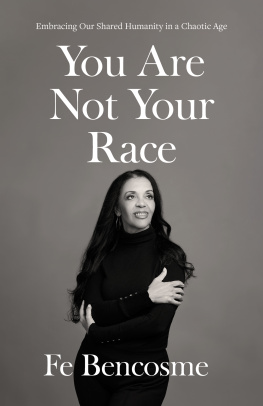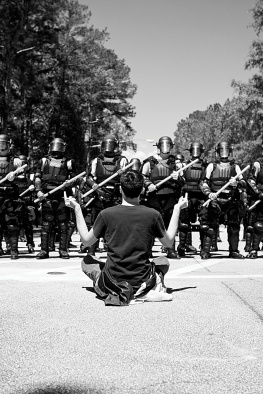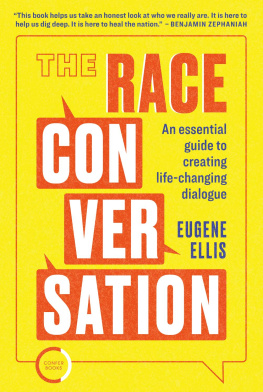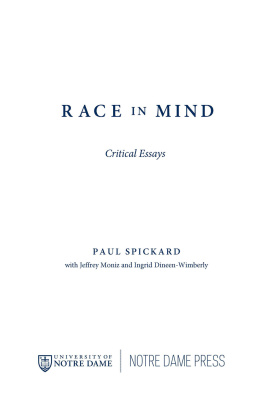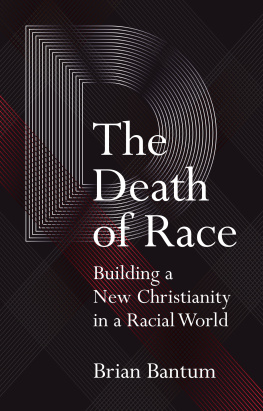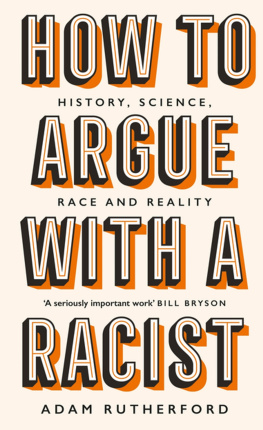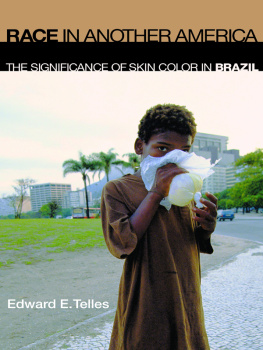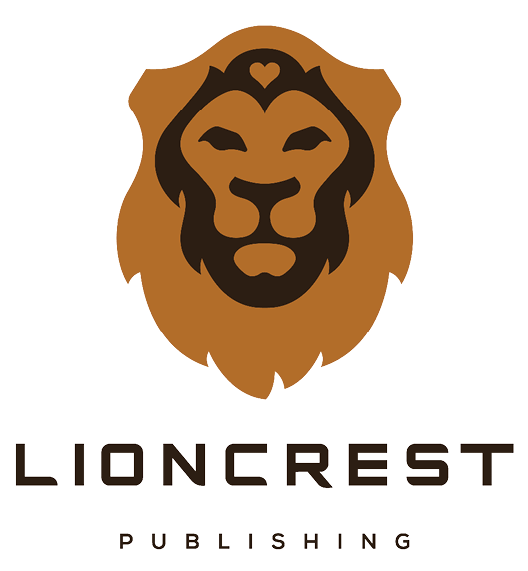All rights reser ved.
Introduction
What are y ou?
For people of mixed heritage in race - obsessed America, this is the question that hovers at the edge of our identity. Many of the loudest voices in our culture take it as an article of faith that everyone must classify themselves according to ready - made racial categories. While ultimately these classifications mean very little to me and many other Americans, we are all being forced to confront the increasingly strident voices of racial ideolog ues.
As someone born to a woman of African descent from the Virgin Islands and a father of European descent from the Dominican Republic, people cannot easily and immediately place me as black or Latina, or any other ethnic or racial category for that matter. On rare occasions, a person will come right out and ask, What are y ou?
This would be viewed by many as an annoying and discourteous question, best responded to with a sigh and an eye roll, or perhaps even rage. But for me it is an ideal opportunity to challenge assumptions, and so I answer with questions of my own:
What do you mean? Do you mean my ethnicity? My political identity? My ra ce?
I am always amused by the quizzical look I get back. Many of my fellow Americans are so locked into identifying people by the misconceived notion of racial category that they have trouble understanding someone who does not view the world through that l ens.
My unwillingness to bind myself to a specific category is no longer safe and neutral ground in our culture. Why do I refuse to identify by r ace?
Before intelligent discussion can begin, it is important to get clear on terms. Many peopleincluding those who ask the question what are you?often mix together terms like race, ethnicity, and national ity.
Race is essentially an unreal category, culturally constructed and causing havoc in our culture. Ethnicity is the aggregate of our heritage and backgrounds. It is the language, cuisine, values, and traditions that get passed down through generations. Ethnicity is often confused with race, but ethnicity is the culture or cultures you identify with, such as Italian, Puerto Rican, German, etc.
Nationality is your legal political identity. If you are a legal American citizen, then your nationality is American. If a person legally switches citizenship, they have also changed nationalit ies.
Some cultures view ethnicity and nationality as inseparable. Dominicans are an example of this. United by a common history, language, and traditions, their pride in country is profound. And this despite a continuum of skin tones ranging from white on one end to black on the other, and every shade in between. Identifying with your ethnicity or nationality does not require a reference to race at all.
Getting Perspective
The fundamental premise of this book is that we are inflicting serious damage to ourselves as individuals and as a country because of our relentless focus on race. From my perspective, a person who grounds their identity in their outward characteristics and ancestry is a person who is severely limiting their freedom, both personally and politica lly.
While I would agree that people of mixed heritage are often given scant attention in our debates over racial ideology, I do not believe the lesson should be that we need to begin emphasizing biracial or multiracial as a category. I do not believe identifying as biracial, multiracial, or mixed heritage puts a person at a disadvantage in America. Nor do I believe doing so elevates a person to victim status in need of special protect ion.
In fact, the solution is quite the oppos ite.
What Is Race, Really?
Our national obsession with race is especially damaging when you consider that, strictly speaking, race does not exist. It is a socially and intellectually constructed category that gets very fuzzy when you hold it up to inspection. You may find it hard to get your head around the idea that race is a myth, but we will cover this concept in more detail in Chapte r 2.
Race is an arbitrary category society has created, and so too are the terms biracial and multiracial. But since large swaths of our culture have accepted these racial categories as fundamentally true, concepts such as black, white, and brown have huge real - world impacts. Therefore, one of the things I hope to do in this book is to turn some of the accepted language of race on itself and show how hollow much of our race talk is. I will show how the very idea begins to crumble when you look closely at its contradicti ons.
This is not to say that I want to take away the freedom of anyone else to identify as black or white or brown or any other color or race. If I do not want to be judged for refusing to choose a category, it would be hypocritical to infringe on the different choices of oth ers.
I even have some sympathy for the arguments and feelings of those who choose to identify by race and color. There are good historical reasons why it is paramount for many Americans of African descent to be seen as black, and unapologetically so. Many would say that it is important to be out front boldly when, for a significant part of American history, attempts were made to keep them out of si ght.
However, understanding this position is not the same as agreeing. The weaponization of fallacy in the reckoning of historical grievances is counterproductive. This book will interrogate our obsession with race and color and ask how much more we might achieve as individuals and as a country if we took race off the table. What if we dropped all the qualifiers we use in front of American and identified simply as Americans, first and forem ost?
While I do advocate detaching our identity from hard and fast racial categories, we do need a common language in order to communicate with each other. For expediency, I will use the current terms biracial, multiracial, mixed heritage, and multiethnic interchangeably. Also, it has become more common in the media to capitalize the word black when using it in a racial context. This is yet another symptom of our current cultural mania for emphasizing race and elevating it as an overwhelmingly dominant category. In keeping with this books focus, the word black will remain lowercase. I will also occasionally use these terms with quotation marks to draw attention to the tenuous nature of these lab els.
Continuing to use the language of labeling by race is problematic for me. With language, we can either diminish or emphasize a topic, and so for me to continue to make racial distinctions by language is somewhat painful. Black, brown, Hispanic, white, etc., all serve to divide us, and the more we use these words, the more we normalize dividing oursel ves.
Our long - range goal should be to rid our language and talk of race - based descriptive qualifiers altogether. This will sometimes make our speech more inefficient and cumbersome, but we must try. However, to address the issues of race in this book, I must inevitably use some race - based words to explain what I am for and agai nst.

